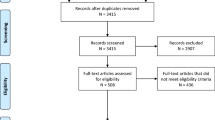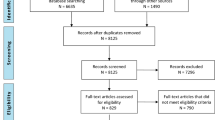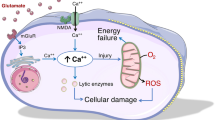Abstract
Background
Prognostication for survivors of cardiac arrest is a frequent challenge to neurologists. Our aim was to determine whether the FOUR (Full Outline of UnResponsiveness) score is an accurate predictor of outcome in patients after cardiac arrest and to compare its performance to the Glasgow Coma Scale (GCS).
Methods
We prospectively identified patients surviving cardiac arrest from June 2006 to October 2009. Neurologic exams were grouped into two time intervals following cardiac arrest: 1–2 days and 3–5 days. The FOUR score and the Glasgow coma scale (GCS) were determined for each examination. Primary outcome was in-hospital mortality.
Results
Of 136 patients, 112 (82%) were examined on days 1–2 after cardiac arrest and 87 (64%) on days 3–5. Forty-seven patients (35%) survived to hospital discharge and 89 (65%) died during hospitalization. No patients with a sum FOUR score ≤4 at exam days 3–5 survived (false positive rate [FPR] 0% C.I. 0.000–0.0345), whereas one patient (2%) with sum GCS score of 3 survived to discharge (FPR 2.2%, C.I. <0.0001–0.1758). At days 3–5 after arrest, 41 of 45 (91%) patients with a sum FOUR score >8 survived (P < 0.0001), while 39 of 45 (87%) with a sum GCS > 6 survived (P < 0.0001). A 2-point improvement in FOUR score, but not GCS, in serial exams was associated with survival. Sensitivities, specificities, positive, and negative predictive values were comparable between both scales.
Conclusion
The FOUR score, a simple clinical tool, is an accurate predictor of outcome in patients surviving cardiac arrest.



Similar content being viewed by others
References
Chen R, Bolton CF, Young B. Prediction of outcome in patients with anoxic coma: a clinical and electrophysiologic study. Crit Care Med. 1996;24(4):672–8.
Bassetti C, Bomio F, Mathis J, Hess CW. Early prognosis in coma after cardiac arrest: a prospective clinical, electrophysiological, and biochemical study of 60 patients. J Neurol Neurosurg Psychiatry. 1996;61(6):610–5.
Logi F, Fischer C, Murri L, Mauguiere F. The prognostic value of evoked responses from primary somatosensory and auditory cortex in comatose patients. Clin Neurophysiol. 2003;114(9):1615–27.
Fogel W, Krieger D, Veith M, et al. Serum neuron-specific enolase as early predictor of outcome after cardiac arrest. Crit Care Med. 1997;25(7):1133–8.
Wijman CA, Mlynash M, Caulfield AF, et al. Prognostic value of brain diffusion-weighted imaging after cardiac arrest. Ann Neurol. 2009;65(4):394–402.
Levy DE, Caronna JJ, Singer BH, Lapinski RH, Frydman H, Plum F. Predicting outcome from hypoxic-ischemic coma. Jama. 1985;253(10):1420–6.
Zandbergen EG, Hijdra A, Koelman JH, et al. Prediction of poor outcome within the first 3 days of postanoxic coma. Neurology. 2006;66(1):62–8.
Edgren E, Hedstrand U, Kelsey S, Sutton-Tyrrell K, Safar P. Assessment of neurological prognosis in comatose survivors of cardiac arrest. BRCT I study group. Lancet. 1994;343(8905):1055–9.
Wijdicks EF, Parisi JE, Sharbrough FW. Prognostic value of myoclonus status in comatose survivors of cardiac arrest. Ann Neurol. 1994;35(2):239–43.
Wijdicks EF, Hijdra A, Young GB, Bassetti CL, Wiebe S. Practice parameter: prediction of outcome in comatose survivors after cardiopulmonary resuscitation (an evidence-based review): report of the Quality Standards Subcommittee of the American Academy of Neurology. Neurology. 2006;67(2):203–10.
Young GB, Doig G, Ragazzoni A. Anoxic-ischemic encephalopathy: clinical and electrophysiological associations with outcome. Neurocrit Care. 2005;2(2):159–64.
Mullie A, Verstringe P, Buylaert W, et al. Predictive value of glasgow coma score for awakening after out-of-hospital cardiac arrest. Cerebral resuscitation study group of the Belgian society for intensive care. Lancet. 1988;1(8578):137–40.
Schefold JC, Storm C, Kruger A, Ploner CJ, Hasper D. The Glasgow Coma Score is a predictor of good outcome in cardiac arrest patients treated with therapeutic hypothermia. Resuscitation. 2009;80(6):658–61.
Wijdicks EF, Bamlet WR, Maramattom BV, Manno EM, McClelland RL. Validation of a new coma scale: the FOUR score. Ann Neurol. 2005;58(4):585–93.
Iyer VN, Mandrekar JN, Danielson RD, Zubkov AY, Elmer JL, Wijdicks EF. Validity of the FOUR score coma scale in the medical intensive care unit. Mayo Clin Proc. 2009;84(8):694–701.
Stead LG, Wijdicks EF, Bhagra A, et al. Validation of a new coma scale, the FOUR score, in the emergency department. Neurocrit Care. 2009;10(1):50–4.
Wolf CA, Wijdicks EF, Bamlet WR, McClelland RL. Further validation of the FOUR score coma scale by intensive care nurses. Mayo Clin Proc. 2007;82(4):435–8.
Jennett B, Bond M. Assessment of outcome after severe brain damage. Lancet. 1975;1:480–4.
Sandroni C, Barelli A, Piazza O, Proietti R, Mastria D, Boninsegna R. What is the best test to predict outcome after prolonged cardiac arrest? Eur J Emerg Med. 1995;2(1):33–7.
Sponsorship and Disclosures
This study was not sponsored. Dr. Jennifer Fugate reports no disclosures. Dr. Alejandro Rabinstein reports no disclosures. Dr. Daniel Claassen reports no disclosures. Dr. Roger White reports no disclosures. Dr. Eelco Wijdicks reports no disclosures.
Author information
Authors and Affiliations
Corresponding author
Rights and permissions
About this article
Cite this article
Fugate, J.E., Rabinstein, A.A., Claassen, D.O. et al. The FOUR Score Predicts Outcome in Patients after Cardiac Arrest. Neurocrit Care 13, 205–210 (2010). https://doi.org/10.1007/s12028-010-9407-5
Published:
Issue Date:
DOI: https://doi.org/10.1007/s12028-010-9407-5




